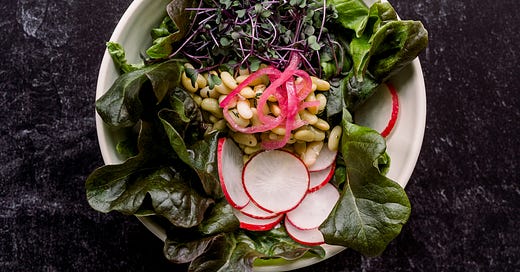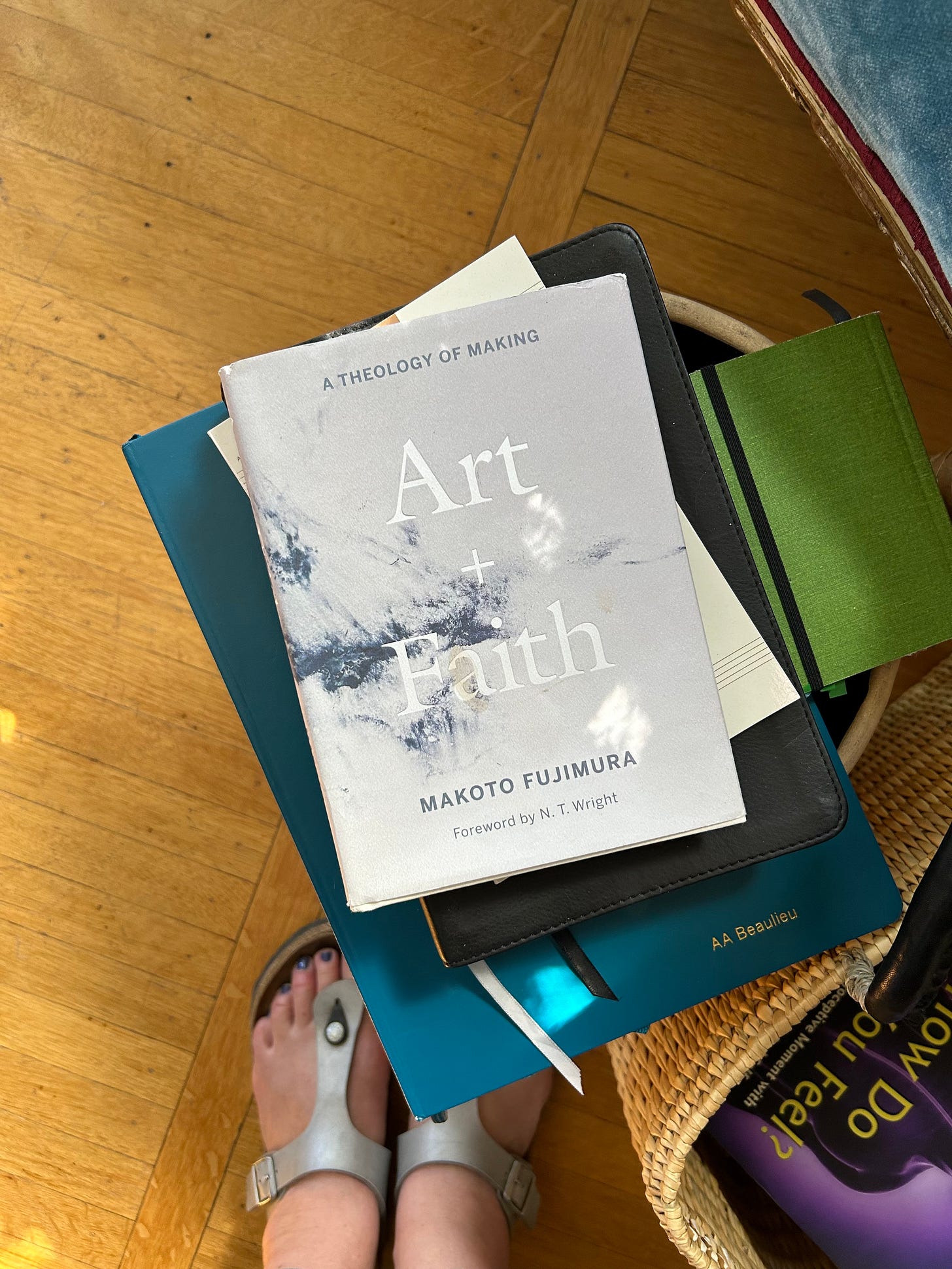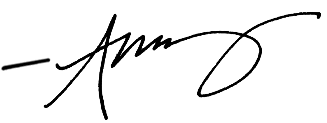What do you see? smell? taste? feel?
When I'm nerding out wine tasting, I use a one-page sheet I developed which focuses my attention on the sensual aspects:
what do you see? pale straw, rosé, orange, pale or deep ruby?
what do you smell and taste? apple, fresh cut grass, salinity, minerality, cherries, tea, black pepper, resinous herbs?
what do you feel? in or out of balance? light or full body? acidity? what about the tannins; are they smooth, grippy, rough, or ragged? how’s the finish? do you want another sip?
what does the wine bring to mind? a picnic by the shore? a cozy night in front of the fire? a lime green trapezoid? (this last one is an example that amused my wine instructor, Karen MacNeil, but reinforces—anything goes!— it’s your mind, they’re your senses, so name it! It’s fun and it will help you remember the wine.
I bring this up here because, intuitive eating is very much like wine tasting. Pay attention to your senses, be curious and explore, try new things, taste anew without all the rules and diet chatter in your head.
You don’t have to be a nerd about it and write it up on a sheet, but get curious: do you like it? If not, why are you eating it? Choose something else; it’s okay. It’s more than okay, it’s a necessary part of cultivating a positive relationship with food (and yourself!)
I discovered a newfound love of fruits and vegetables when I no longer thought of them as the “healthy option” (which made me want off-limits stuff instead—cookies, chocolate, chips, etc..) When you stop letting rules run your food life, you become free to eat what you enjoy AND notice what makes you feel good.
Art + Faith
I just love this book, Art + Faith; A Theology of Making by Makoto Fujimura. I would call it a bridge between the Bible and what Christian faith actually looks like, lived out in real life. How do we love our neighbor? How do we see beauty in all peoples? How do we deal with the pain and sorrow and brokenness of this world? How do we bring light into the darkness?
The author (and artist), Makoto Fujimura, sought sustenance from T.S. Eliot’s Four Quartets in the dark days after 9/11 in New York City, his home. In this book he shares the beauty he sees in the work of “makers” including poets and authors, artists, musicians, and theologians. But his main point is that this capacity to make is within each of us. Each of us is living an art project that only we can bring to life, not for show, but to change the world for the better, to be part of something generative.
“In order for us to move beyond our utility, we need to stop regarding as the center of our being what we do to be useful and recognize that who we are in relationship to the center, God, is more important.” p.94
Beautiful Salads
Before I sign off for today, I’d better give you a link for a few components of that beautiful salad photo:
Pickled Red Onions (I keep these in the fridge constantly; good for so many things!)
Link to my “Fresh & Light” recipes (plant-based, vegan, and some raw)
Smooth Sailing, Fix Your Food Relationship in 2025!
So this is week 18 of Smooth Sailing. We’ve covered the 10 Principles of Intuitive Eating, and I post every Monday to share my perspective on how to set yourself free from diet-thinking and live a more connected life. Please subscribe and share. Thank you so much for being here.
Here’s a recap since the beginning of January:
About Love & Cookies, homepage
Week 1: Food Addict? Or Something Else?
Week 3: Sugar “Addiction” and Primal Eating
Week 4: One is Never Enough…because None are Allowed
Week 6: Allow Yourself to Receive
Week 7: Think About Food Less + Enjoy it More
Week 9: Your Natural Healthy Weight
Week 10: Fit-for-You vs. Body Beautiful
Week 11: Enjoyment is Part of Being Healthy
Week 12: French Women Don’t Get Fat and Other Nonsense
Week 14: The Cost of the Work-First Lifestyle
Week 15: Courage to Make Big Change
Week 16: Part of Being Real, Being Human…
Have a great week!







